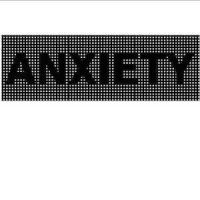According to a new, multicentre study, 1 in 10 patients is at risk of having new post-traumatic stress disorder (PTSD) related to their ICU experience up to a year post-discharge. The research, published in the American Journal of Respiratory and Critical Care Medicine, is the first to investigate ICU-related PTSD in a mixed veteran and civilian cohort.
PTSD can occur in patients after the traumatising events of critical illness, and this study provides estimates on new cases of PTSD stemming specifically from the ICU experience. Pre-existing PTSD (ie, PTSD before hospitalisation) has rarely been systematically assessed in prior cohorts, and this study took extra effort to distinguish pre-existing PTSD from new PTSD cases.
Mayur Patel, MD, MPH, FACS, assistant professor at Vanderbilt University Medical Center and surgical intensivist at the Nashville VA Medical Center, and colleagues analysed data from ICU survivors enrolled in studies from three Veterans Affairs hospitals (MIND-ICU Study, NCT00400062) and one civilian hospital (BRAIN-ICU Study, NCT00392795). Using the PTSD Checklist for the DSM-IV to determine PTSD for this study, a total of 181 patients were assessed at three months and 160 were further assessed at 12 months.
Results showed that the cumulative incidence of PTSD was 6 to 12 percent within one year following hospitalisation. "Although lower than prior research and public perception suggests, the rate of ICU-related PTSD is very comparable to the 8 percent PTSD rates seen in current and former service members deployed to the recent Iraq and Afghanistan conflicts," Dr. Patel points out. "It is important to understand more about PTSD following the traumatising events of a critical illness so we can better support the growing number of ICU survivors."
Assessing risk factors for ICU-related PTSD, Dr. Patel's team found that pre-existing PTSD as well as prior depression were strong risk factors associated with ICU-related PTSD at three and 12 months after hospitalisation. Being a veteran did not increase risk of ICU-related PTSD, nor did duration of delirium, amount of pain medication, or amount of sedative.
"Currently, the international psychological aftercare for ICU survivors is not organised proactively; rather, it is largely reactive in response to disabling reports from survivors, caregivers, and primary care providers," the authors write. "The Institute of Medicine in the United States has recommended a systematic collection, analysis, and dissemination of data assessing the quality of post-conflict PTSD care in the military and veteran populations. We suggest that the same should apply to the large civilian and veteran populations of critically ill survivors."
Source: American Thoracic Society
Image credit: Flickr.com
PTSD can occur in patients after the traumatising events of critical illness, and this study provides estimates on new cases of PTSD stemming specifically from the ICU experience. Pre-existing PTSD (ie, PTSD before hospitalisation) has rarely been systematically assessed in prior cohorts, and this study took extra effort to distinguish pre-existing PTSD from new PTSD cases.
Mayur Patel, MD, MPH, FACS, assistant professor at Vanderbilt University Medical Center and surgical intensivist at the Nashville VA Medical Center, and colleagues analysed data from ICU survivors enrolled in studies from three Veterans Affairs hospitals (MIND-ICU Study, NCT00400062) and one civilian hospital (BRAIN-ICU Study, NCT00392795). Using the PTSD Checklist for the DSM-IV to determine PTSD for this study, a total of 181 patients were assessed at three months and 160 were further assessed at 12 months.
Results showed that the cumulative incidence of PTSD was 6 to 12 percent within one year following hospitalisation. "Although lower than prior research and public perception suggests, the rate of ICU-related PTSD is very comparable to the 8 percent PTSD rates seen in current and former service members deployed to the recent Iraq and Afghanistan conflicts," Dr. Patel points out. "It is important to understand more about PTSD following the traumatising events of a critical illness so we can better support the growing number of ICU survivors."
Assessing risk factors for ICU-related PTSD, Dr. Patel's team found that pre-existing PTSD as well as prior depression were strong risk factors associated with ICU-related PTSD at three and 12 months after hospitalisation. Being a veteran did not increase risk of ICU-related PTSD, nor did duration of delirium, amount of pain medication, or amount of sedative.
"Currently, the international psychological aftercare for ICU survivors is not organised proactively; rather, it is largely reactive in response to disabling reports from survivors, caregivers, and primary care providers," the authors write. "The Institute of Medicine in the United States has recommended a systematic collection, analysis, and dissemination of data assessing the quality of post-conflict PTSD care in the military and veteran populations. We suggest that the same should apply to the large civilian and veteran populations of critically ill survivors."
Source: American Thoracic Society
Image credit: Flickr.com
References:
Patel MB et al. (2016) Incidence and Risk Factors for ICU-related Posttraumatic Stress Disorder in Veterans and Civilians. Am J Respir
Crit Care Med. Published online 06 Jan 2016, DOI:
10.1164/rccm.201506-1158OC
Latest Articles
healthmanagement, depression, stress, critical illness, PTSD, risk factors, veterans
According to a new, multicentre study, 1 in 10 patients is at risk of having new post-traumatic stress disorder (PTSD) related to their ICU experience up to a year post-discharge. The research is the first to investigate ICU-related PTSD in a mixed vetera



























